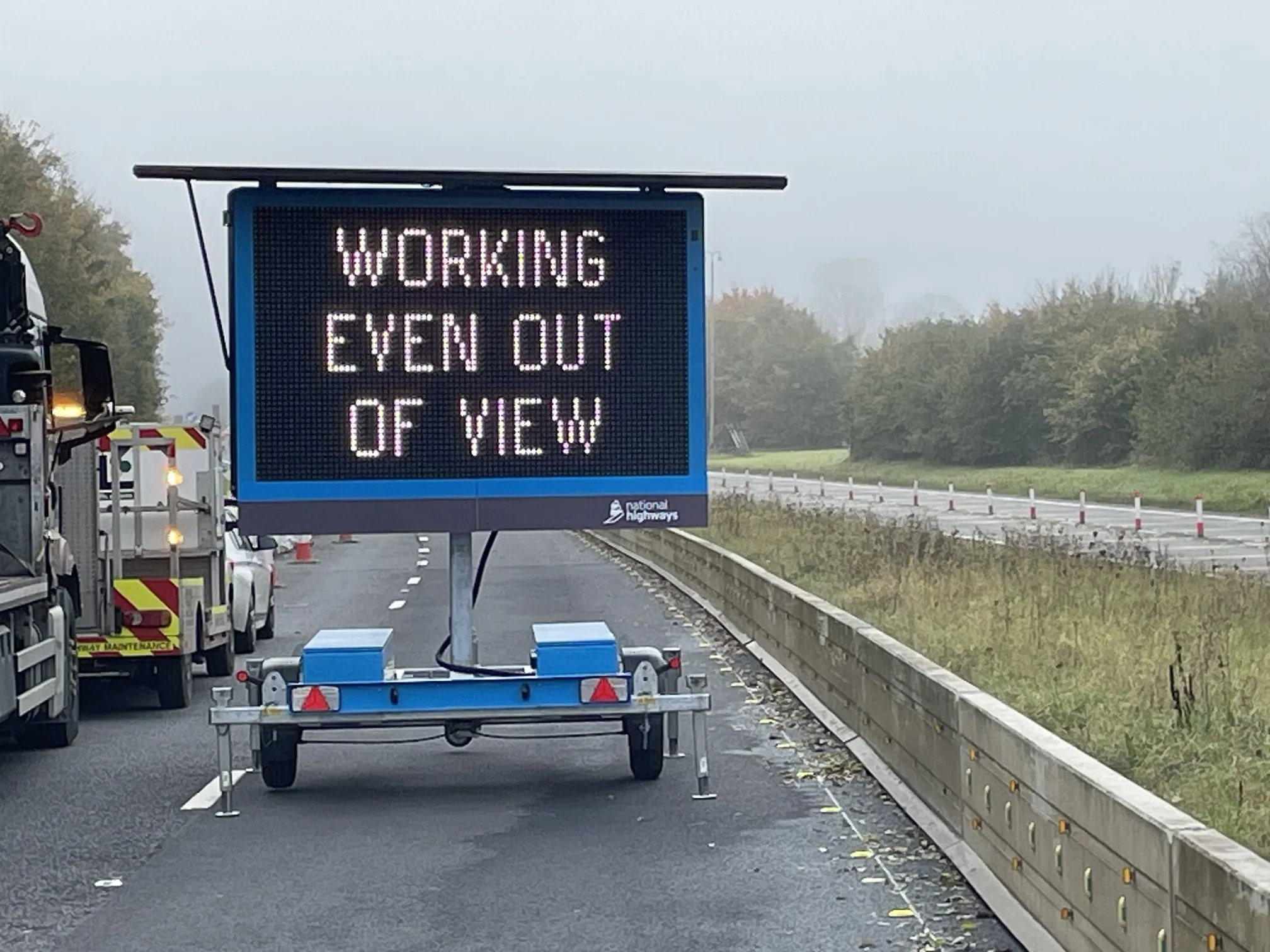As smart motorways reach their first birthday in the UK this week, the Institute of Advanced Motorists (IAM) has expressed concern that widespread confusion still exists amongst motorway users on how best to use them.
Smart motorways were officially introduced this time last year to replace Managed Motorways as the solution to the nation’s congested motorways but concerns have been raised over their safety.
England’s first all-lane running motorway, i.e. without a hard shoulder, opened on the 2.5 km
April 14, 2015
Read time: 3 mins
As smart motorways reach their first birthday in the UK this week, the 6187 Institute of Advanced Motorists (IAM) has expressed concern that widespread confusion still exists amongst motorway users on how best to use them.
Smart motorways were officially introduced this time last year to replace Managed Motorways as the solution to the nation’s congested motorways but concerns have been raised over their safety.
England’s first all-lane running motorway, i.e. without a hard shoulder, opened on the 2.5 km stretch of the M25 between junctions in April 2014.
Complete schemes, with variable speed limits and all-lane running, are in operation on the M1 (Junctions 10-13), M4 (Junctions 19-20), M5 (Junctions 15-17), M6 (Junctions 4-10a), M42 (Junctions 3a-7) and M62 (Junctions 26-29/30) and with part -time hard shoulder running on the M42 since 2006.
In addition all systems use lane control, overhead gantries and emergency refuge areas.
Part of the concern raised by motorists was the safety of those who had broken down on a motorway with no hard shoulder, and the increase in distances between safety refuges.
The IAM conducted a survey on the introduction of smart motorways last year, which found 71 per cent of drivers said they would feel less safe on a motorway with no hard shoulder than a motorway with one.
Some 40 per cent of respondents said they were sceptical that new monitoring systems on smart motorways, such as traffic detectors and CCTV, would protect them in the event of stopping in a running lane.
Sarah Sillars, IAM chief executive officer, said “There are many different motorway users out there and some are still confused and nervous about using SMART motorways – if they are aware of them at all.
She added: “Highways England must analyse incident data on a continuous basis and ensure that any lessons learned from the real world use of SMART motorways are implemented quickly. Ultimately, the smartest way to build awareness would be to allow learner drivers to use motorways under expert supervision.”
Transport Focus, which represents road users on the strategic road network (consisting of most motorways and significant trunk A roads) said in their report Road User Needs and Experiences, issued last month: “While some drivers were aware of smart motorways, some were not. Even those who have driven on smart motorways were not always familiar with the term, nor did they understand clearly how they operated.”
Smart motorways were officially introduced this time last year to replace Managed Motorways as the solution to the nation’s congested motorways but concerns have been raised over their safety.
England’s first all-lane running motorway, i.e. without a hard shoulder, opened on the 2.5 km stretch of the M25 between junctions in April 2014.
Complete schemes, with variable speed limits and all-lane running, are in operation on the M1 (Junctions 10-13), M4 (Junctions 19-20), M5 (Junctions 15-17), M6 (Junctions 4-10a), M42 (Junctions 3a-7) and M62 (Junctions 26-29/30) and with part -time hard shoulder running on the M42 since 2006.
In addition all systems use lane control, overhead gantries and emergency refuge areas.
Part of the concern raised by motorists was the safety of those who had broken down on a motorway with no hard shoulder, and the increase in distances between safety refuges.
The IAM conducted a survey on the introduction of smart motorways last year, which found 71 per cent of drivers said they would feel less safe on a motorway with no hard shoulder than a motorway with one.
Some 40 per cent of respondents said they were sceptical that new monitoring systems on smart motorways, such as traffic detectors and CCTV, would protect them in the event of stopping in a running lane.
Sarah Sillars, IAM chief executive officer, said “There are many different motorway users out there and some are still confused and nervous about using SMART motorways – if they are aware of them at all.
She added: “Highways England must analyse incident data on a continuous basis and ensure that any lessons learned from the real world use of SMART motorways are implemented quickly. Ultimately, the smartest way to build awareness would be to allow learner drivers to use motorways under expert supervision.”
Transport Focus, which represents road users on the strategic road network (consisting of most motorways and significant trunk A roads) said in their report Road User Needs and Experiences, issued last month: “While some drivers were aware of smart motorways, some were not. Even those who have driven on smart motorways were not always familiar with the term, nor did they understand clearly how they operated.”









